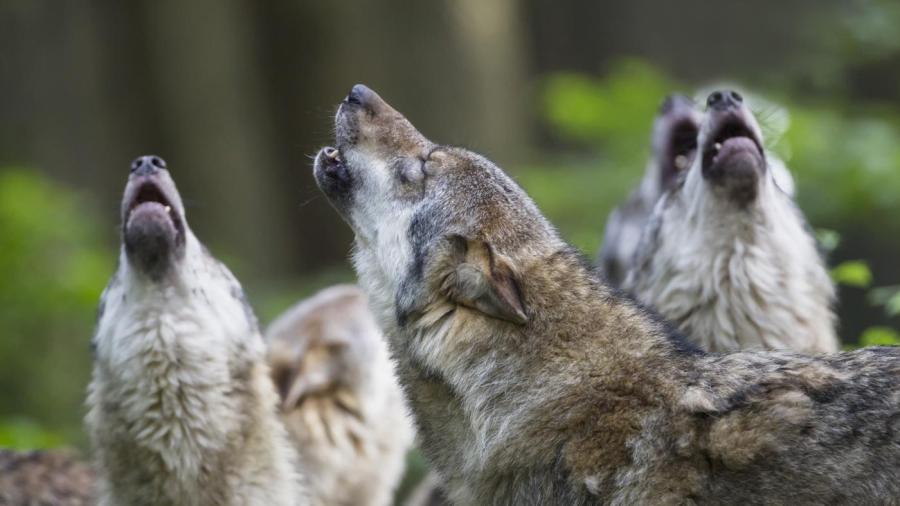Why Do Wolves Howl?

Wolves howl to communicate with other wolves. Often, this communication serves to signal the pack to gather around, let the rest of the pack know where a single wolf is and warn outside wolves away.
One of the most important reasons for howling is for wolves to keep track of each other. This is critical because wolves don’t always stay together, especially in large territories where food is scarce. Each howl is unique and serves as that individual wolf’s signature. Recent studies suggest that during this separation, those wolves who howl most often have a special relationship with the wolf that is currently missing from the group. The howl, then, is a sign of love and friendship.
Wolves howl in a chorus, with different members singing at different pitches. Some scientists think this chorus howling is a way to trick enemies or outside wolves into thinking the number of wolves in a pack is higher than it really is. Other scientists say that sometimes wolves howl just for fun. While howling supposedly strengthens the bond between wolves, it can also result in quarrels.
Despite popular belief, wolves do not howl at the moon. They raise their heads because it gives the howls better acoustic qualities and sound range.





